Advertisements
Advertisements
Question
Now that you have enjoyed reading the story, answer the following question by choosing the correct option
The granddaughter found her grandmother in tears on her return as _____
Options
the grandmother had been unable to read the story 'Kashi Yatre' on her own.
the grandmother had felt lonely.
the grandmother wanted to accompany her granddaughter.
she was sad she could not visit Kashi.
Solution
the grandmother had been unable to read the story 'Kashi Yatre' on her own.
APPEARS IN
RELATED QUESTIONS
Answer the following question.
How do you think the rain quenches the thirst of the fields and cures the ailments of the
clouds ?
Answer the following question.
"….All can hear, but only
The sensitive can understand'
What does the poet want to convey?
Complete the following paragraph with suitable words/ phrases highlighting the
theme of the play. You can do it in pairs.
The play deals with a _________ and _________ Bishop who is always ready to lend a
__________ hand to anyone in distress. A __________ breaks into the Bishop's house
and is __________and warmed. The benevolence of the Bishop somewhat
_____________ the convict, but, when he sees the silver candlesticks, he
________them, and runs away. However, he is __________ and brought back. He
expects to go back to jail, but the Bishop informs the police they are a ___________.
The convict is_________by this kindness of the Bishop and before he leaves he seeks
the priest's blessing.
You are a member or 'Explorer', an adventure club. Write a paragraph about one of your experiences or adventure activity.
Here are some words and phrases you can use
| Curious | thrilled | terrified | relieved |
| felt euphoric | agonizing moments | insecurity | grateful |
| uncertainty | overwhelming experience | extraordinary | courage |
What is your opinion about 'Animals behind bars'? Share your views with the class.
Look at the following pictures/diagrams. Fill in the blanks with an appropriate sentence/phrase, using suitable future time reference. The first one has been done for you as an example:
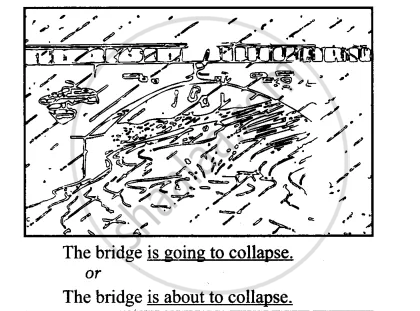
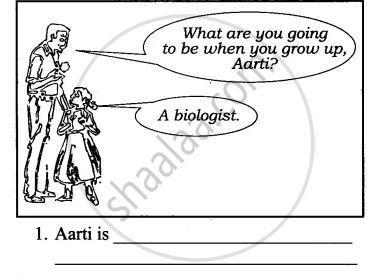

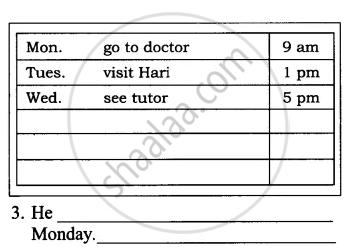
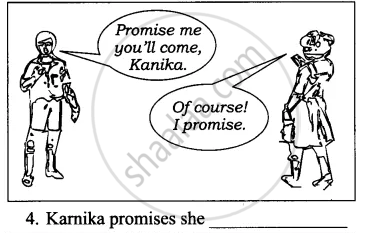

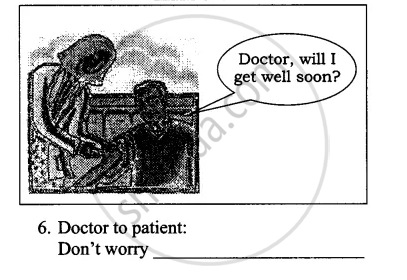
Look at the following pair of sentences. Underline the modals and discuss why each one is used in that sentence.
e.g.
I must not take those pills. (I’m not allowed.)
I need not take those pills. (It is not compulsory but I may if I wish.)
(b) I needn’t go to the meeting if I don’t wish to.
2. (a) I can swim a length of the pool.
(b) I can swim in the pool on Saturdays.
3. (a) You ought to get a nice present for her.
(b) You have to get a nice present for her.
4. (a) Can I go to the toilet?
(b) May I be excused?
5. (a) I may come tomorrow if I have the time.
(b) I might come tomorrow but it’s going to be difficult.
Did you know?
Modals are a small group of verbs that are used to express possibility,
probability, capability, capacity, ability, obligation and predictions.
Some of the modals you learnt in this unit are
can
may
shall
could
might
should
Need, dare, had better are also modals.
Understanding Modals:
Modal Auxiliaries
A modal verb or auxiliary verb is a verb, which modifies another verb, so that
the modified verb has more intention in its expression. In essence the modal
verb expresses modality, the way in which something is being said.
The main modals are
Can: could; may: might; shall: should; will: would: must; ought to; need to;
have to.
The negative modals are
Couldn't; wouldn't; shouldn't; mustn't; needn't; oughtn't/ ought not to
| Modal | Examples | Uses |
| Can/ can't |
She can read and write It can rain today Can I borrow your pen? Can you lend me your notes? Can I carry your books? |
ability possibility /probability seeking permission request offer |
| Could/ couldn't |
Could I borrow your book? Could you please help me with this sum? We could go for a picnic on Sunday I think you could come first this time There was a time when I could work round the clock. |
seeking permission request suggestion possibility/ probability past ability |
| May |
May I have some water? May I help you? May I shut the door? India may become a super power by 2020. May God bless you |
request offer permission possibility/ probability wish/ desire |
| Might | They might sell their house as they need the money. | future possibility/ probability |
| Will /Won't |
It is very cold so I will stay at home. I will help you if you wish. Will you look after my dog for a day? It will rain tonight. I will get you a shawl from Srinagar. |
intention offer request prediction promise |
| Would/Wouldn't |
Would you mind if I come over tonight? Would five o'clock suit you? Yes it would. Would you pass the salt? Would you come to my party? Would you prefer tea or coffee? |
permission making arrangements request invitation preference
|
| Shall |
Shall I help you? Shall we meet at 3.00 pm outside Bakshi Stadium? |
offer making arrangements |
| Should |
We should check the timings of the train. You should listen to the advice of your elders. |
recommended action advice |
| Ought to |
You ought to do your duty. The bus ought to be here any minute |
advice probability |
| Must/mustn't |
We must make a move now. You mustn't tell lies. |
obligation necessity |
| Need |
He need not go to the market. You need to lose weight. I need to get the groceries. |
necessity compulsion insistence |
Interactive practice
Individually, write down four sentences as in column A in 3.
| A (First speaker) | B (Questioner) | C (Reporter) | |
| 1. | What did he say? | ||
| 2. | What did she say? | ||
| 3. | What did he say? | ||
| 4. | What did the notice say? |
Report the following questions. (Use if/whether or why, as appropriate.)
- Have you met my sister?
She asked _________________ (use you and her) - Do you want a drink?
He asked _________________ (use you) - Why didn’t you study for the Unit test?
She asked _________________ (use he) - Can you help me with my homework this evening?
He asked _________________ (use she) - Have you had lunch yet?
They asked _________________ (use he)
Class discussion
• Is a biography written in a particular order of events?
• Which is the most common tense?
